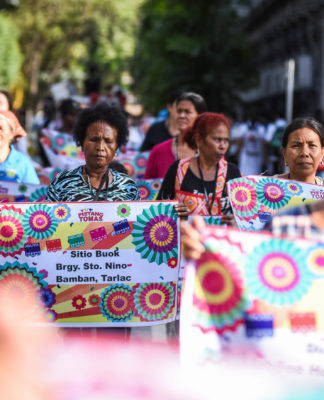THE FIRST cardinal of Myanmar will represent Pope Francis in the 51st International Eucharistic Congress (IEC) to be hosted by Cebu City in January 2016.
Yangon Archbishop Charles Bo, the first cardinal from Burma, has been appointed by the Supreme Pontiff as papal legate to the eucharistic congress, organizers announced last Oct. 25.
Cardinal Bo was one of the 20 new cardinals appointed by the Pope in February 2015. He served as president of the Catholic Bishops’ Conference of Myanmar for six years. The cardinal is an advocate of harmonious relationships between Myanmar’s diverse religious groups.
With the theme “Christ in You, Our Hope of Glory,” the international congress will be held from Jan. 24 to 31 next year. An estimated 15,000 people are expected to attend the religious event.
This will be the second time the Philippines will host the IEC, which is held every four years. The last time was in 1937 in Manila during the pontificate of Pope Pius XI, the first time the IEC was held in Asia.
Apps launched
For its 51st edition, the IEC is taking advantage of digital technology. Two mobile applications have been launched: the IEC 2016 Guide and the Real Presence. Both were made by Cebu-based developer InnoPub.
IEC 2016 Guide serves as the official app of the IEC, featuring a comprehensive guide to the heritage structures of Cebu, which will be part of the IEC’s Visita Iglesia activity. The Real Presence was initially launched to introduce the IEC hymn and disseminate the schedule of the event.
Digital presence however is not only what makes the 51st IEC different from its previous editions.
According to Cebu Archbishop Jose Palma, the 2016 IEC’s theme “Christ in You, Our Hope of Glory,” is true to the IEC’s goal of showing to the faithful the nature of the Eucharist as mystery and mission.
The theme of the upcoming congress seeks to encourage Catholics, especially the laity, to reawaken their faith in Christ, Palma said in a phone interview.
“To come to the Eucharistic congress is to realize that indeed in Christ is our hope. Christ is present in many ways, but above all in the Eucharist. We will realize the social dimension of the Eucharist. We are needed to engage in a mission through dialogue with the poor, youth, with culture and other religions,” Palma said
Why Cebu was chosen
For the year 2016, the Church decided to hold the IEC in an Asian country.
Palma said the capacity to organize and welcome delegates from other countries in an open manner was among the reasons Cebu, the country’s “cradle of faith,” was chosen by the Vatican to hold the event.
“We are now Eucharistic apostles who can bring the love for the Eucharist in other countries. Filipinos have become missionaries who must not only think of growing as Catholics in the country but also disciples of Jesus and sharers of faith to other people,” he said.
The Philippines had the most number of delegates in the 2012 IEC in Dublin, Ireland. Palma, then president of the Catholic Bishops’ Conference of the Philippines, headed the Philippine delegation.
1937 IEC in Manila
The Philippines is no stranger to IECs. The country hosted the 33rd International Eucharistic Congress on Feb. 3 to 7, 1937 at Luneta Park in Manila, with the theme, “The Eucharistic Apostolate in the Mission.”
According to the Vatican’s documents on IECs, re-evangelization was the central objective of the 33rd congress, which was attended by 1.5 million pilgrims from all over the world.
A report by Fr. Lawrence Bunzel, S.V.D. posted on the blog philippineromancatholic.blogspot.com narrated how communists tried to undermine the Manila IEC in 1937.
“The communists of Tondo told the people to boycott the Congress by not decorating their houses. The communists threatened to burn all houses that would be decorated. The people were afraid to decorate, except one family in the heart of the suburb,” the priest wrote. Fire later destroyed Tondo, except the house that had decorations.
The first eucharistic congress was held in the 19th century, amid advances by Protestant missionaries. Organized by Gaston de Segur, a French bishop, it was held in Lille, France on June 21, 1881. The congresses were originally meant to gather local residents, but eventually grew in importance in the universal Church. M.D.L. Macalino













